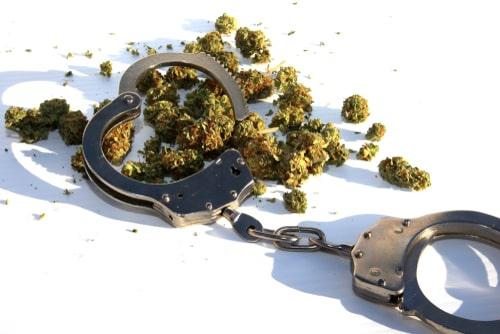What Are the Penalties for Distributing Marijuana Products in Texas?
 Texas law is very strict when it comes to drug offenses, and marijuana is no exception. Even though this substance has been legalized in several other states, and it is generally considered to be no more harmful than alcohol, it continues to be treated as an illegal controlled substance in the Lone Star State. Residents of Texas could potentially face charges related to both marijuana and products containing THC. While possession of these substances can result in significant penalties, the consequences of a conviction for delivery of marijuana or THC products can be even more severe. If you have been arrested or charged with distributing marijuana products in Texas, you could be facing jail time, fines, and a criminal record that can follow you for years.
Texas law is very strict when it comes to drug offenses, and marijuana is no exception. Even though this substance has been legalized in several other states, and it is generally considered to be no more harmful than alcohol, it continues to be treated as an illegal controlled substance in the Lone Star State. Residents of Texas could potentially face charges related to both marijuana and products containing THC. While possession of these substances can result in significant penalties, the consequences of a conviction for delivery of marijuana or THC products can be even more severe. If you have been arrested or charged with distributing marijuana products in Texas, you could be facing jail time, fines, and a criminal record that can follow you for years.
Criminal Charges for Marijuana Delivery
Under the Texas Controlled Substances Act, the offense of "delivery of marihuana" involves knowingly and intentionally transferring marijuana to someone else, including by selling the drug or giving it to others. The minimum charge, which will apply when in cases involving delivery of 1/4 of an ounce or less without receiving anything in return, is a Class B misdemeanor. A conviction can result in a sentence of up to six months in jail and a maximum fine of $2,000.
Penalties become more serious in situations involving payments or compensation for delivering marijuana. Receiving monetary payments or anything of value in return for delivering 1/4 of an ounce of marijuana or less is a Class A misdemeanor, and a conviction may result in up to one year of prison time and a maximum $4,000 fine. Higher amounts of marijuana will result in felony charges. Delivery of 1/4 of an ounce to five pounds is a state jail felony, which carries a prison sentence of 180 days to two years. Five to 50 pounds will result in second degree felony charges, and a conviction will carry a sentence of two to 20 years. 50 to 2,000 pounds will result in first degree felony charges, and a person may face a sentence of five to 99 years. Felony offenses generally have a maximum fine of $10,000. However, in cases involving the delivery of more than 2,000 pounds of marijuana, a person may be sentenced to between 10 years and life in prison and fined up to $100,000.
Other types of THC products, such as edibles or oils, may result in even more serious drug delivery charges. Texas law includes THC in Penalty Group 2, meaning that it is considered to be less dangerous and addictive than "hard drugs" such as heroin or cocaine, but it is still treated very seriously by law enforcement. Delivery of a substance containing THC that weighs less than one gram is a state jail felony. Delivery of one to four grams will result in second degree felony charges, while delivery of four to 400 grams will be charged as a first degree felony. Cases involving more than 400 grams may result in prison sentences between 10 years and life and fines of up to $100,000.
As with other types of drugs, there are certain situations where simply possessing marijuana or THC products could result in drug distribution charges, even if a person was not observed delivering the substances to others. For example, large amounts of marijuana or marijuana products in a person's home or vehicle could lead to charges of possession with intent to distribute, which will be more serious than simple possession.
Contact Our Fort Worth Marijuana Distribution Defense Lawyer
Accusations of distributing marijuana products in Texas can lead to serious legal consequences. However, it is important to note that every case is unique, and the specific penalties you may face and the defense strategies that may be available will depend on the details of your situation. If you have been arrested or charged with distributing marijuana products, the experienced Tarrant County drug crimes attorney at The Dameron Law Firm can help you understand your options. We will defend you against criminal charges and help ensure that you can achieve a positive outcome for your case. Contact our office at 817-222-0624 for a free consultation.
Sources:
https://statutes.capitol.texas.gov/Docs/HS/htm/HS.481.htm
https://statutes.capitol.texas.gov/Docs/PE/htm/PE.12.htm

 817-222-0624
817-222-0624







